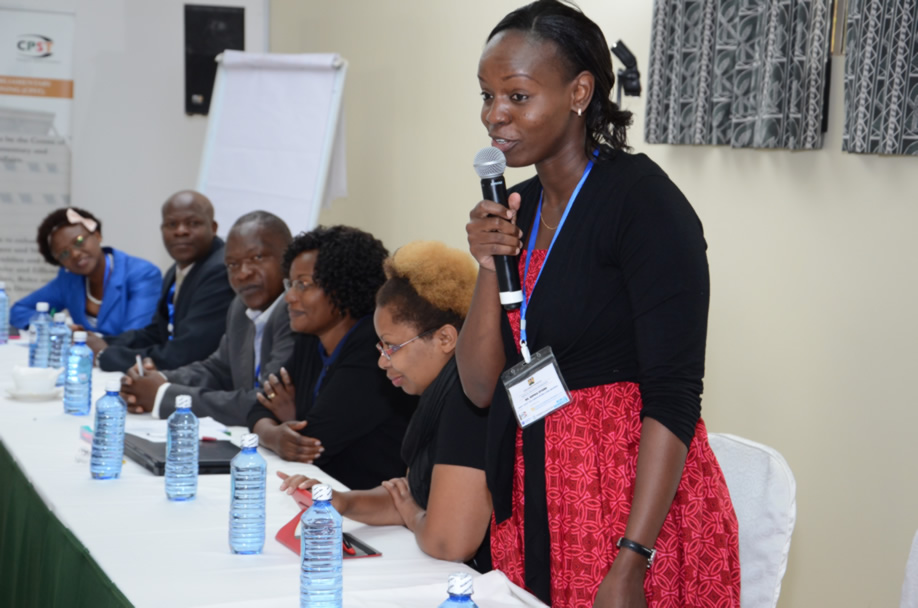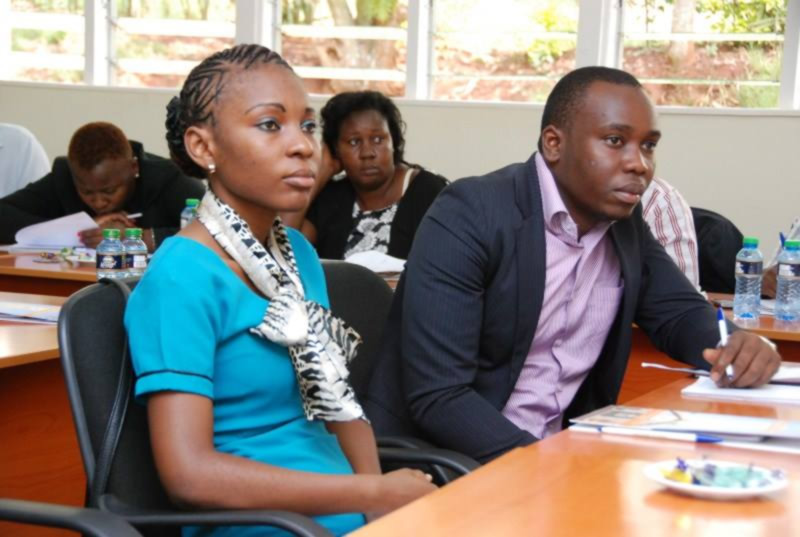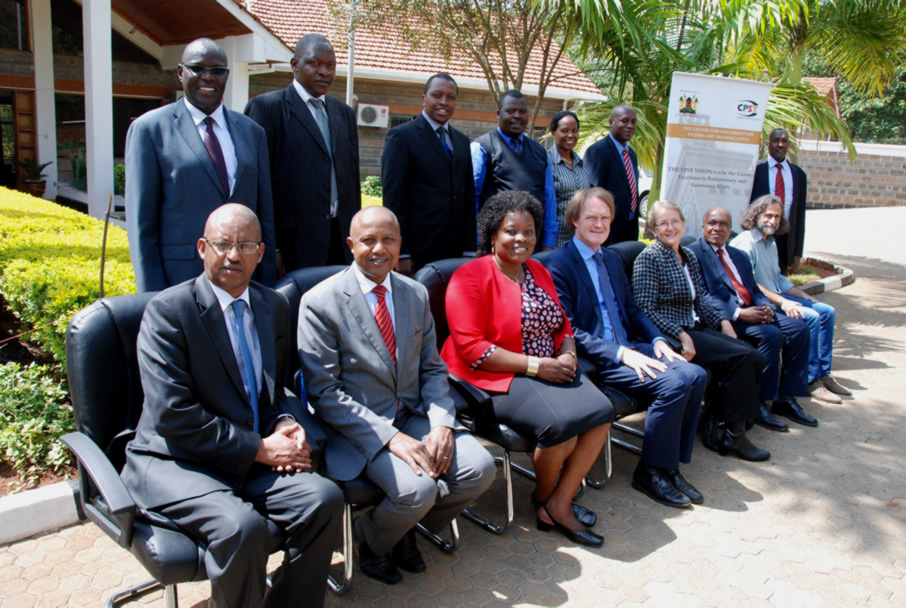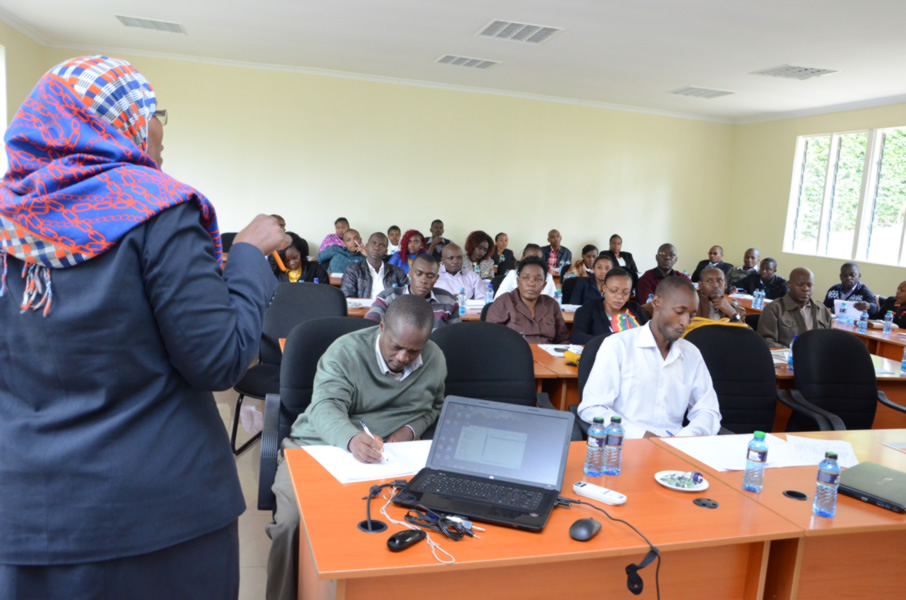Manual Highlights
Acknowledgements
This manual has been prepared with the support and generous contribution of many individuals and organisations. We immensely appreciate the generous financial support of the Ford Foundation; State University of New York (SUNY) Kenya; Westminster Foundation for Democracy (WFD) and UN Women. The involvement of these organisations is a clear demonstration of their strong commitment to capacity building for the legislatures in Kenya and the region. My sincere appreciation goes to the Resident Representatives of these organisations: Mr Maurice MakOloo, Mr Francis Aywa, Ms Hope Muli and Mrs Zabib Kavuma respectively.
About this Manual
This manual aims at providing knowledge on the foundations and practice of effective public information, communication and participation in the legislature. In so doing, the manual covers four core and interrelated modules that define the array of tools, methods, and processes for generation, analysis and communication of information in the legislative arena and how these are useful for promoting public participation.
CPST 113:
-
Effective Communication Skills for Parliamentary Business:
DetailsCourse Duration: 26 HoursOne important aspect of communication is the skill of listening. It is not enough for one just to say something but to ensure that one is also listening to, and making effort to understand what others are saying or the messages they are sending. Communication is also important in organisations. For organisations such as Parliament to perform even basic functions, there is great need for effective communication. For example, parliamentarians need to learn to clearly express themselves while stating ideas and thoughts or participating in debates both within and outside Parliament. They need to communicate in a language that does not ignite conflict on cultural or gender lines.
This is a three-day course that aims at equipping parliamentarians, parliamentary staff and any other interested persons with knowledge and skills that can help them communicate more effectively. Communication is a wide concept, comprising verbal, non-verbal and para-verbal components. It is central to human existence and is critical in human relationships and in the smooth running of any organisation. This is because it is through communication that we share opinions, beliefs and plans. Communication happens through verbal or written messages and is sometimes facilitated through things like phones and the internet.
CPST 110:
-
Public Policy and Legislative Research and Analysis:
DetailsDuration: 30 HoursThe Constitution of Kenya vests the legislative authority to Parliament at the national level as follows:The legislative authority of the Republic is derived from the people and, at the national level, is vested in and exercised by Parliament - The Constitution of Kenya, Article 94. (1). At the same time, the constitution vests executive power to the executive as follows: Executive authority derives from the people of Kenya and shall be exercised in accordance with this Constitution – The Constitution of Kenya, Article 129 (1). In the County, this authority is vested in both the County Assembly and County Executive Committee respectively.
For both Parliament and the Executive to undertake these roles effectively, they need to have access to timely, up to date, accurate and well researched information in order to be able to develop and assess performance of various legislation and policies in an efficient, correct and impartial manner. This course is intended to expose participants to the principles and practice of legislative research and policy analysis. It further seeks to underscore the importance of evidence-based policy research in legislative work; and how this assists legislators to deliver on their mandate.
CPST 111:
-
Legislative Outreach and Public Participation:
DetailsDuration: 22 HoursThis module aims to equip the participants with the relevant knowledge, skills and attitudes on parliamentary outreach and public participation so as to enable them facilitate the public involvement in parliamentary business. This ensures that citizens are directly involved in self determination.
At the same time, the Parliament of Kenya through administrative process has provided avenues for citizens to effectively engage in parliamentary business through public hearings, opening up of parliamentary committees to public input for example during appointments vetting among others. The county assemblies in designing their own administrative protocols also take into cognisance this constitutional requirement for public participation and make allowances for it. Public participation is not a privilege but a right guaranteed by the Constitution and recognised by international protocols and as such Parliament takes a proactive role in delivering and making its business accessible.
CPST 107:
-
The Parliamentary Hansard:
DetailsDuration: 24 HoursThe aim of this course is to expose lawmakers, legislative staff and other interested parties to the Hansard production system and the importance of the Hansard reports in assisting legislators to execute their constitutional mandate. The course also aims at equipping the participants with necessary skills and knowledge that will enable them to produce final transcripts of plenary and committee proceedings.
The Hansard is the full report, in the first person, of all speakers in Parliament. A full report defined as one on which, though not strictly verbatim, is substantially the verbatim report, with repetitions and redundancies omitted and with obvious mistakes corrected, but which on the other hand leaves out nothing that adds to the meaning of the speech or illustrates the argument (Erskine May, 2004). Accuracy of the Hansard is critical in effective delivery of the legislative, oversight and representation roles of legislators. The Hansard is an important source of parliamentary information that helps in the monitoring of the legislation process, assessing performance of legislators and quality of debates.
-
CPST stands for?
Centre for Parliamentary Studies and Training



















